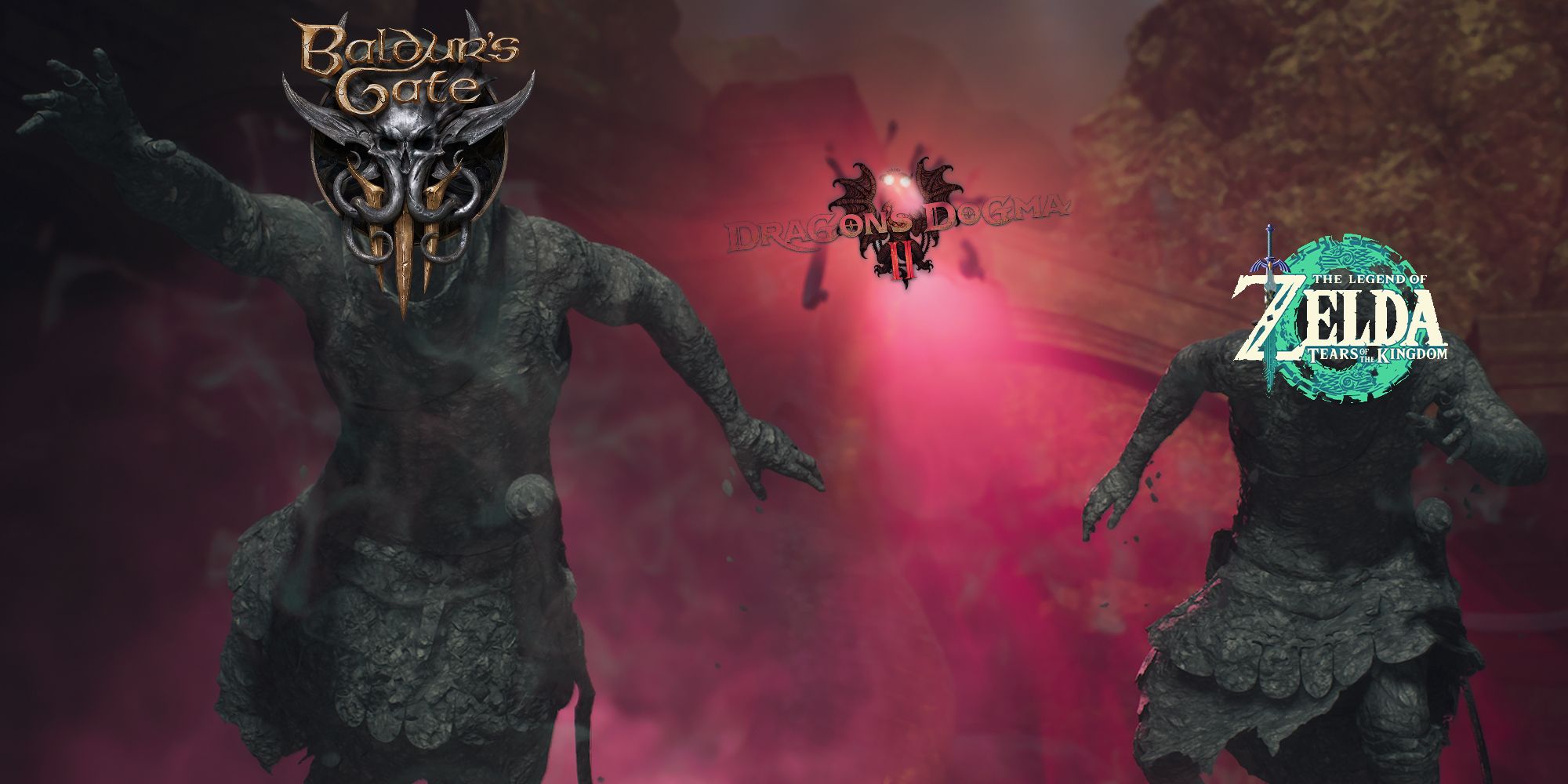Dragon's Dogma 2 Doesn't Care About The State Of Modern Video Games

Everyone is talking about Dragon’s Dogma 2 right now. I didn’t expect it to achieve popularity outside its once niche audience so quickly, flirting with the mainstream in a way you rarely see games like this achieve.
But after Baldur’s Gate 3 broke down barriers last year, selling millions of copies along the way, perhaps it was only a matter of time until another game came along to do the same. It is a deep, uncompromising RPG that asks big questions of the player and expects them to go on a long, oftentimes challenging ride, but the final destination is well worth it.
The same can be said with Dragon’s Dogma 2 and its unconventional approach to exploration and combat, as it presents us with myriad systems that aren’t afraid to clash with users, rubbing up against us in ways that can be equal parts frustrating and rewarding. But it is in this friction where such brilliance is found. A janky, ambitious, and fulfilling pilgrimage that ignores countless moves forward the medium has taken over the years, and is so much better for it.
Given it would eventually go on to sell millions of copies since its original release in 2012, I’m conflicted about whether Dragon’s Dogma can truly be called a cult classic.
Double Fine’s Harper Jay published a great piece this week about Dragon’s Dogma 2 and how this might be the worst year for a friction-heavy game such as this to reach a massive audience. The average gamer is so used to complete control, so any desire for a developer to take that away is always going to lead to either outrage or misunderstanding.
Over the past decade, triple-A game design has been sanded down to accommodate what we have come to perceive as the ideal power fantasy. Even in games like The Last of Us or Horizon: Zero Dawn where we are depicted as everyday people, we will eventually grow into all-powerful figures who can take on armies of enemies without a second thought. To make us feel small or powerless is to invite outrage or criticism, like asking players to consider the virtual world they inhabit might not be built entirely around them is sacrilege. We are so used to being treated as the centre of attention in games like this that to suggest otherwise will be a symbol of genius to others, but outright barbarism to everyone else.
This sort of polarisation is healthy for video games, or any artistic medium, and we give creatives a chance to challenge ingrained expectations and upend the status quo from new perspectives. Without this, we only risk stagnation, something which, with open-world design at the very least, has made itself known. Gamers were relieved when Breath of the Wild had come along to upend years of predictable fare, while Baldur’s Gate 3 opened the floodgates for an entire genre, arguably introducing a new generation to Dungeons & Dragons, and it’ll be several years before we get a proper taste of its impact on the industry as a whole.
Despite releasing over a decade ago, it feels like no time has passed between the original Dragon’s Dogma and its sequel. At least in terms of design, it feels like Capcom is building on its philosophy alone when it comes to how its combat, exploration, and world are pieced together. It’s a daring proposition, and one that could have blown up in its face. For some, that has happened, with unforgivable mechanics like
Dragonsplague pushes away people who came into Dragon’s Dogma 2 with the best of intentions, but a game that will ruin your entire playthrough because you didn’t pay attention isn’t going to be for everyone.
But the beauty of Dragon’s Dogma 2 is how it spits in the face of our own expectations, and that of an industry where blockbusters have come to represent very specific experiences. It isn’t that we dislike the friction it presents to us, but have instead been conditioned to view anything outside very specific parameters as an intruder, like it isn’t precisely what video games should be.
Even in its own campaign, Dogma 2 repeatedly asks you to change your approach or reconsider what you know, right up until a stunning needle drop in the final act which changes pretty much everything, a point I doubt many players have reached quite yet just days after launch. The thing is, I’m not sure this game could exist in any other form.
Directed by Hideaki Itsuno, known for his work on Devil May Cry, Dragon’s Dogma was born from a team of developers who were accustomed to character action titles, but wanted to try their hand at an open-world RPG. It draws inspiration from the obvious things like Oblivion or The Lord of the Rings, imbued with a picturesque rendition of Western fantasy and a laundry list of exceptionally obtuse gameplay mechanics that, by and large, we’d never seen before.
They had never encountered the usual problems that come from developing an RPG of this scale, and thus never used any of the presumed solutions. This led to creative ideas that still stand the test of time despite some unpolished edges, and the same is true of its sequel and how it builds on a foundation that has never been touched in the past decade, so it still feels fresh, new, and rather terrifying. We weren’t ready for it back then, but now, we’re so damn close to embracing it.
Dragon’s Dogma 2 and the reactions we are seeing to it right now are a natural evolution of blockbuster video games if they learn the right lessons and move in a positive direction. The conversation right now is about either falling in love with the obstacles it asks us to conquer, or walking away at the first hurdle out of immediate frustration. It is asking questions and not afraid to analyse our ingrained behaviours towards video games, and how they are capable of so much more if we give them a chance, or appreciate oppositional design choices which are ultimately present to immerse and reward us in equal measure.
6 Images 6 Images CloseYour Rating
close 10 stars 9 stars 8 stars 7 stars 6 stars 5 stars 4 stars 3 stars 2 stars 1 star Rate Now 0/10Your comment has not been saved
Like Follow FollowedDragon's Dogma 2
Action RPG Systems 4.5/5 OpenCritic Reviews Top Critic Avg: 87/100 Critics Rec: 91% Released March 22, 2024 ESRB Mature 17+ // Blood and Gore, Language, Sexual Themes, Violence Developer(s) Capcom Publisher(s) Capcom Engine RE EngineWHERE TO PLAY
DIGITALDragon's Dogma is the long-anticipated sequel to Capcom's action RPG. Once again taking on the role of the Arisen, the game promises full customisation in how you create your character and play through your story.
Powered by Expand Collapse












